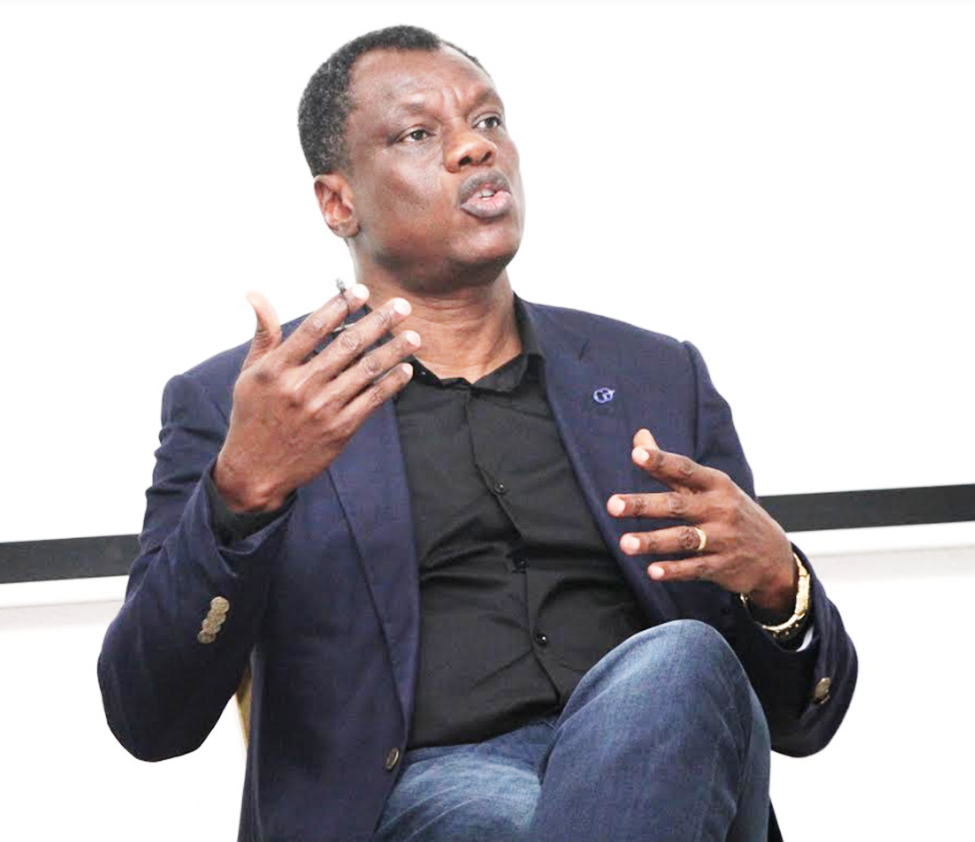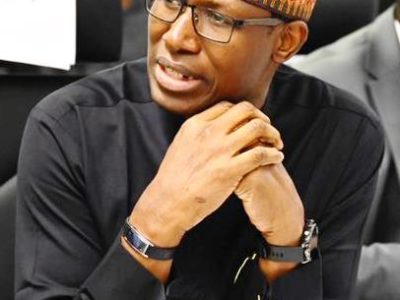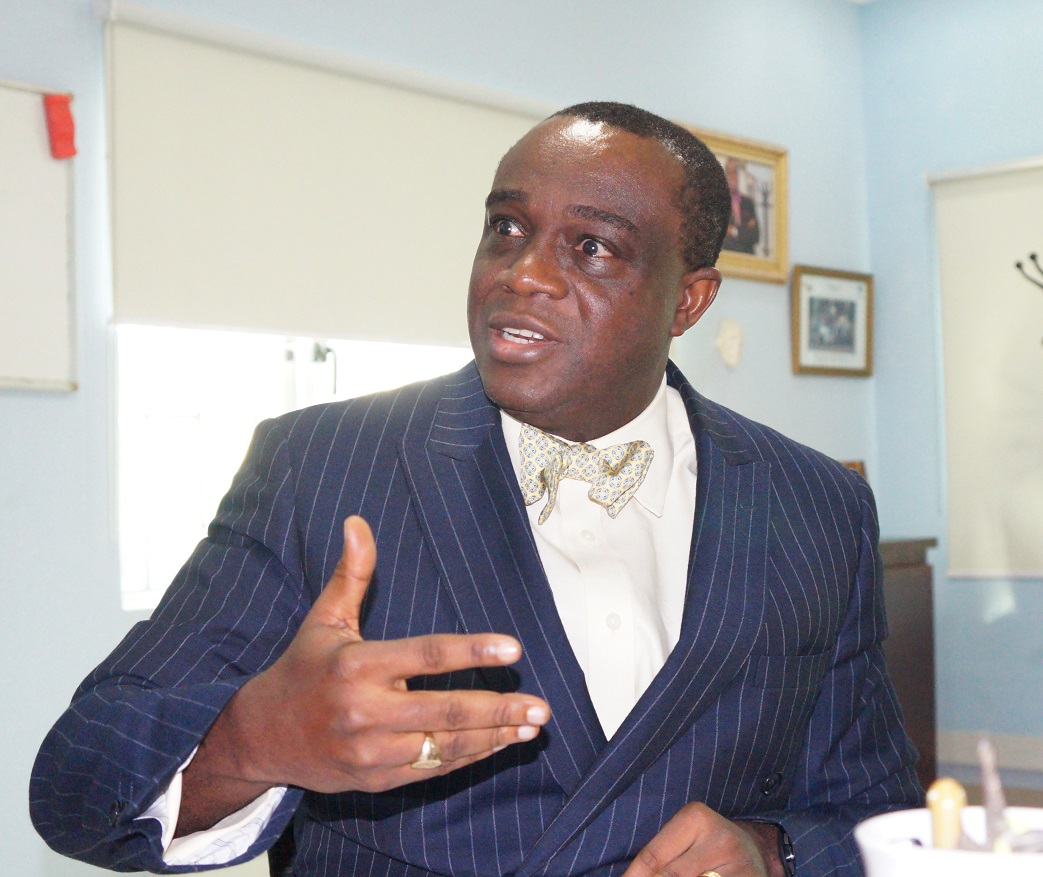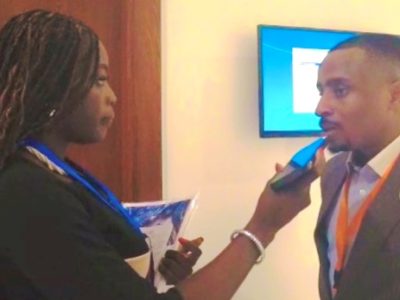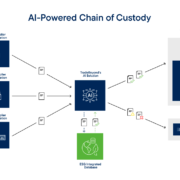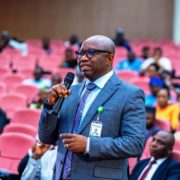Austin Okere, founder of CWG Plc and now an entrepreneurship guardian, has made his mark to firm up Nigeria’s business and technology space. It’s almost three decades he founded CWG and built a team to nurture it into a thriving technology conglomerate. Okere shares, in Lagos with IT Edge News, the often overlooked details of sustaining businesses in an under-infrastructure economy. He tells IT Edge News, Oluwatobi Opusunju, that government is still hollow at advancing ICT agenda and argues that an entrepreneurship culture is best fostered on passion and focusing on solving problems. But he’s optimistic that problems are transitional like solutions too. So long people, businesses and countries can adapt, they will thrive. Nigeria still has a good chance to alter its narrative for good, Okere hinted. He should know. He has grown and sustained a corporate vision through the power of adaptability.
CWG has been around for almost three decades, and is surviving in a market that is increasingly growing and evolving. How has the journey been so far?
Ok. I think the first thing to mention is that every idea has its time and the time for the idea is maximized by the company at that particular time. But when the idea moves on, the company has to be innovative to move on too. The idea moves on because the customers’ taste change or mature; customers are looking for effective solutions, speed of service delivery and a price point they will feel comfortable with and can afford.So, if the company is not able to adapt to the customers’ requirements then of course obsolescence will set in and there will be newer players that will offer what the customers want and they will take the customers away.
What CWG has been able to do is that it always rediscovers itself not in incremental steps, but rather in a transformative manner. For example, we started as a hardware shop selling and supporting Dell, then we realized during that time that a lot of people were beginning to use their computers in a network environment. So, we decided that rather than leave the opportunity on a table, we will be networking the computers for them and we went into networking of computers. Then, we discovered the computers were selling and the banks were going into what we call one branch banks.As at that time, whenever you have an account in a branch, that is the branch you go to and you couldn’t go to another branch, because they don’t have a central data base; there was no wide area network .So, if you cannot connect to the head office then you couldn’t know the current balance. As a result of that, they started looking at wide area network, so we jumped into it and at that time we were usingVery Small Aperture Terminal (VSAT) and that was what the bank were using and we became the biggest VSAT provider.
“People going to steal batteries and solar panels at the base stations are also a problem, but obviously the biggest problem [to broadband rollout] is the government.”
What made our service different in becoming the biggest VSAT provider was that, the companies then were selling the hub to the customers – the hub was very expensive; it was like everybody having their own Google hub and we said no we don’t need that. When we operate the hub and do the routing for you, so all you need is the receiver and then we will broadcast and you will receive. Then the banks were like, no we don’t want anybody to see our data and we say well nobody will see your data, at least when you send a mail through Gmail, Google doesn’t see what you are sending, but it was difficult to explain to them so people just gave up. Although, we didn’t give up, we kept explaining to them until when they bought the idea and moved all their wide area connectivity. So at that point in time, out of 89 banks, about 80% of them were on our system.
“We are always adapting – So each time we change the game, people think that they are going to copy our business model and compete with us, but by the time they get to where we are, we had already changed the game and gone on to something different”
And when we realized that in year 2000, there was something called Y2K bug and people were saying planes will fall from the sky; computer will not work, etc. This made banks panic, so they wanted to be compliant. And that gave us an opportunity to go in and provide software which was compliant. About the same time also, we signed a partnership with a company in India called Infosys, so we started selling their software called Finacle. Today, Finacle controls about 70% of bank transactions in Nigeria. We are always adapting – hardware, local area network, wild area network and then we went into software.
Interestingly, about the same time also, we had the consolidation of the banks and we also had the GSM coming in; the license for GSM started around 2000. By 2002, we had already gone into what we call managed services. We started providing managed services for telecoms companies, banks; almost all the big ones. Today, we provide for MTN, 9Mobile. Then we saw that there was broadband through fiber and smart phones, so people want everything on their phones; they wanted to consume information on the phone and then you have to put information in the cloud to make them have it on their phones. So before people started talking about apps, we had already decided to focus all our efforts in providing software in the cloud, that can be used on a subscription bases (Pay- As -You -Go). So small companies could afford it and they don’t have to buy their own software or own an IT department. They will just use the software in the cloud and pay. And today, I think we are probably the biggest in cloud computing software.
So each time we change the game, people think that they are going to copy our business model and compete with us, but by the time they get to where we are, we had already changed the game and gone on to something different. So that is how we have been surviving; learning, relearning, unlearning and I believe that it is only the company that is adaptive that will survive. In the days before, we always say the big fish eat the small fish, but today it is really the fast fish that eats the slow fish.
The telecoms sector is witnessing a lot of challenges in the area of telecoms infrastructure and the NCC recently just set up a committee to find solutions to the problems. Is CWG as an Infraco of note playing a role in that aspect also as well as in the area of accelerating the country’s broadband penetration?
For years now, we’ve had our eyes on something different rather than just providing base stations. Of course, we provide base stations building and support for the telcos, but we’ve had our sight more on increasing the broadband penetration in the country. Because if there is broadband anywhere, then the business model that was not possible before will be possible; people will be able to provide services on the phone whether it is in agriculture for farmers to control the pricing of goods that they want to sell.But if there is no broadband, they wouldn’t even be able to do a Google search. So, the best way in our view was to go to the institution of higher learning and we worked with the World Bank and the Committee of the Vice Chancellor of the Federal Ministry of Education to establish what we now call NGREN, which means Nigeria Research and Education Network.
“So that is how we have been surviving; learning, relearning, unlearning and I believe that it is only the company that is adaptive that will survive. In the days before, we always say the big fish eat the small fish, but today it is really the fast fish that eats the slow fish.”
The first phase of the NGREN, which CWG was the consortium leader of Airtel, Medallion and about five other companies, was about enlisting the first batch of about 27 universities for broadband, which was 20 times what the universities would have been receiving if they were able to be doing it by themselves, because it was collective and then we also had the price lowered to a point that is a mere fraction. It was a big fight because every university wanted to do their own, but always when you do it in bulk, you get a better service and it’s cheaper.
Then at the end of the first year after the segment expired, the government who was supposed to renew the segment was bringing additional 100 universities. The first 27 universities covered a million staff and faculty and the next 100 would have covered 5 million and eventually we could have rolled it across all the 600 polytechnics and universities. But it didn’t go further after the first phase. The painful thing is that if you look at the hit map of internet usage, you will see that there is a strong hit map in Yola and I know you would have guessed why! It is because of the America University in Yola. Because when there is a university that has broadband the surrounding community is also able to use that service (maybe they will pay for it) and there is nothing that develops a place than a university. If you look at Ife, Nsukka, Unilag, all these communities spread quickly because of the university presence there and broadband would have followed that same frequency and by this time we will not be talking about 30% ; which I don’t think it’s possible come 2018. If we had gone on to the 100 and then the 600, because there is a university in every geopolitical zone now, we would have covered everywhere. But then, like every good thing in Nigeria, you wake up and the story has ended. So as I speak to you the equipment and everything is there but it’s been almost three years now and they have not paid for the service.
What do you think is the way forward for Nigeria to accelerate broadband accessibility?
The fundamentals to achieve it are there. What are the fundamentals? The fundamentals are that we have more than enough terabyte at the seashore. The initial problem was that it was only NITEL that had Sat-3 cable, but today there is more than enough bandwidth to go round. The major bottleneck is the distribution which we call the last mile and I feel that there are many ways in which we can distribute the last mile. Obviously the high institutions’ NGREN was one of the ways and you could also decide to go through federal presences, you know we have all these post offices that were there before and they are not doing anything at the moment. So, why don’t you use them as landing points for broadband? We could even decide to use all MDAs as there is no place where we don’t have federal government presence, because it is needed and not everybody can afford it. But all these distribution opportunities are dead on arrival not just because of policy but greed.
For example, look at right of way (ROW), there are companies that are ready to put fiber in the ground but by the time you go from here to there, area boys and government will come. The last I heard was that even the telecom base stations, people go there to steal the batteries for their home inverters, which really doesn’t pay anybody because only one person is going to have the inverter all to himself and this base station is serving so many millions of people. So, at the end of the day we are the architects of our failure because these are very simple things that could be done. If there is broadband let’s say in Ado Ekiti, for instance, it will boost the economy of the whole of Ado Ekiti much more than the tax you make from the telecom company or whoever is digging, but they want to collect that money, so they don’t dig and they don’t provide broadband for people in Ado Ekiti. Ado Ekiti now ends up not getting the tax and broadband eventually, so it is a double lost.
Are you saying the bulk of the problem facing the low penetration of broadband in the country lies with the government?
I think the majority of right of way permission is by government, but it is not just only the problem of the government. People going to steal batteries and solar panels at the base stations are also a problem, but obviously the biggest problem is the government.
A lot of SMEs are complaining they are being over taxed. The right policy is not there to help SMEs grow. How do you think the government can create the needed enabling environment for SMEs to thrive?
To Tax somebody, the person must be able to pay the tax. That is the person must be gainfully employed and if the government wants to increase taxes, then empower more people to be employed, so that they can pay the taxes.
Look at Yaba, a place where we have tech entrepreneurial hub because they brought broadband as a result of the right of way (ROW) that was giving to MainOne to lay fibre optic cables. Now, if it has worked in Yaba why not duplicate it and make it work in other places. You brought ROW and it opened the door for so many entrepreneurial activities, so take ROW to Surulere, take it to Agege. Because, at the end of the day you are only going to create opportunities for people to do business and when they are empowered they can employ people that can earn money and pay taxes.
There is also what we have that is supposed to support SMEs and startups like Small and Medium Enterprise Development Agency (SMEDAN), Bank of Industry (BOI), etc. For example, if you take SMEs in Nigeria, there are about 30 million SMEs, and companies on the Stock Exchange are about 200 only. UBA probably will not employ more than 5000 people, if you put all the banks and manufacturing companies together and they employ more than 100,000 people, you will be lucky. But if you take these 30 million SMEs and if you empower them such that each one of them can employ one more person, that’s 30 million jobs. That’s bigger than what any bank can offer and that’s what these bodies should be doing in my view, which we proposed to them at a time.
“The fundamentals to achieve [100% broadband] are there…. we have more than enough terabyte at the seashore…. there is more than enough bandwidth to go round. The major bottleneck is the distribution which we call the last mile and I feel that there are many ways in which we can distribute the last mile… you could decide to go through federal presences … all these post offices that were there before and they are not doing anything at the moment….you use them as landing points for broadband. We could even decide to use all MDAs as there is no place where we don’t have federal government presence, because it is needed and not everybody can afford it. But all these distribution opportunities are dead on arrival not just because of policy but greed.”
Now, how do you empower them? They don’t have the money to invest in some technologies and if these requisite technologies are not there, the business might close down. This is where SMEDAN comes in and say okay we will support you for one and half year or one year, so when you see the benefits you can take it up yourself. Otherwise why is SMEDAN there? Why are they the Small and Medium Development Agency of Nigeria? What are they developing and what are they “agencing”? And then also empower them by providing trainings.
CWG has what we call the CWG Academy and we are able to train about 50 people per quarter. So far we have trained about 2000 people; many of them have gone to open their own companies and many of them work in big companies. You can imagine if the scale of this training is about 500 people per quarter, then the multiplying effect is going to come. Why don’t SMEDAN get involved and say okay who can we use to provide these trainings, so they pay and let people come, and they provide them with the means. And then, they can even say when you start working this is your payment plan or is a grant. But you know we want to talk about the Silicon Valley, about what the Kenyans have done, how the Ghanaians are doing it — they all have support with super structures.
Mentoring is another thing, people need inspiration, ideas. They need somebody that will continue to work with them even when they finish the training. So, mentoring, funding support and obviously broadband infrastructure will increase the opportunities especially for business acceleration.
What are your three parting shots for startups?
First of all, success is not a destination, success is a journey. So you need to decide that you are going to embark on this journey and it never ends. You just have to keep going and discover yourself.
Secondly, people ask me if people are born with entrepreneurship skill or are they made, that is a wrong question. The right question is who volunteers. Entrepreneurship is not for the brightest but who volunteers. So, I always encourage a lot of people to volunteer to become entrepreneurs.
Thirdly, it’s not about creating a solution and looking for the problem, but finding out what’s the problem and creating a solution. Look at Paystack, Flutterwave, even Diamond Yellow Account which CWG, Diamond Bank and MTN are providing for global payment; it’s solving a problem. A lot of people just create apps and you ask them what is it for, just to discover it’s for lighting cigarettes. Is it that people can’t light cigarette?
So, first look at what is the problem, and then find the solution. Also you must have passion, if you don’t have passion and you go in because of money it’s a wrong approach, because if you go in to solve a problem and there is passion for it, then the money will follow.
OKERE’S WORDS ON MARBLE
“There are companies that are ready to put fiber in the ground but by the time you go from here to there, area boys and government will come…. we are the architects of our failure… If there is broadband let’s say in Ado Ekiti, for instance, it will boost the economy of the whole of Ado Ekiti much more than the tax you make from the telecom company or whoever is digging, but they want to collect that money, so they don’t dig and they don’t provide broadband for people in Ado Ekiti. Ado Ekiti now ends up not getting the tax and broadband eventually, so it is a double lost.”
“First of all, success is not a destination, success is a journey. So you need to decide that you are going to embark on this journey and it never ends. You just have to keep going and discover yourself.”
“Entrepreneurship is not for the brightest but who volunteers. So, I always encourage a lot of people to volunteer to become entrepreneurs.”
“Entrepreneurship is … not about creating a solution and looking for the problem, but finding out what’s the problem and creating a solution…. A lot of people just create apps and you ask them what is it for, just to discover it’s for lighting cigarettes. Is it that people can’t light cigarette? “


